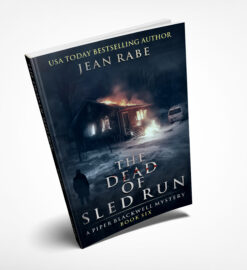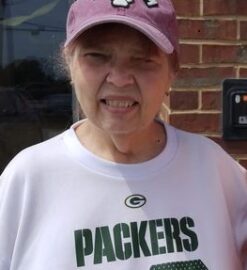Five Questions (and answers)
One of the hosts for my The Dead of Summer blog tour emailed me five questions to answer. Then something happened and he couldn’t make the post. Well … I figure I might as well post it here.

If you could give “Past You” one piece of advice, what would it be?
Move to someplace tropical right
after college graduation and grab whatever jobs you could find until landing a
newspaper beat or other writing gig. In reality I latched onto a newspaper job
before I graduated, and that was in Quincy, Illinois. A nice enough town, but
I’m a tropical soul. I crave summer, sun, breezes … and I basically hibernate
during Midwest winters. Really … I seriously dislike the cold. So I’d tell my
past self to go where the weather suits your soul and work your heart out until
everything else falls into place. Find your happy place. My younger self was too
serious and responsible … my older self regrets that earlier lack of
impulsiveness and daring. Life is way too short to be so serious and
responsible, eh?
Do you see any issues in your genre and how are you addressing them?
Hmmmmmmmm, interesting question. An issue I’ve noticed with some new writers in the police procedure mystery field is lack of quality … not in the writing, but in the research. I’m lightning quick to grab new novels by veterans Michael Connelly, Robert Crais, Lee Goldberg, Tami Hoag, and the like because they know what they’re writing about. They know about guns, ammunition, police procedure, and when villains should be read their rights. I’m much more cautious about picking up a writer new to the game because several of the ones I have tried don’t get it right … their characters collect evidence incorrectly, don’t know how to process a crime scene, put the wrong bullets in the wrong guns, etc. In short, they haven’t done their research. Admittedly, some of these books are from smaller presses, and it is likely the editors or proofers are not versed in police procedures either. But I like my fiction to feel real, and so I don’t bother to finish these books. And I don’t pick up a second by those authors; one chance is all you get in this crowded market. Sooooooooooooo many books published today, an author better get it right to keep selling. At least to keep selling to me.
How do I address it in my writing? I had an advantage of starting out as a reporter, and I often covered cops and courts. I have police friends and a county prosecutor I turn to for advice, and who graciously will read sections of my work to make sure I’ve got it right. I have books on forensics and firearms. And one of my police buddies sent me boxes of law enforcement manuals. I want my novels to be authentic in their procedure, and I’ll put in the time to do it.
Interestingly, when I started my
Piper Blackwell books, I thought I was writing cozy mysteries. A couple of
agents corrected me, saying they were police procedurals … cozy police
procedurals … and that there wasn’t a category for cozy police procedurals.
Huh. I like writing them.
What is one thing that you’ve done for research that you’ve struggled to explain to a non-writer?
The need for hands-on research. Many
of my friends think all I do is sit at a keyboard and write … and take breaks
to Google aspects of my topic. Sure, I do a lot of research on the computer.
But I’m an old-school news reporter at heart, and I generally learn more from
talking to an expert … a detective, sheriff, coroner, politician, etc. … than
by reading articles on the internet. Cultivating personal sources for my
fiction writing has made my stories better and more authentic. Yes, it takes
extra time—sometimes a lot of hours, but it is nice to back away from the
computer once in a while and go old-school. In my new Piper Blackwell book, she
deals with a situation at the county fair. I spent hours at a county fair,
parked at a picnic table with my notebook, recording the sights, sounds,
scents, clothing, conversations—and drinking Lemon Shakeups. Some people don’t
understand the value in face-to-face information gathering sessions … neither
do some young writers in the classes I’ve taught. One such soul said she didn’t
have time to waste on that kind of research.
Which of your characters would you least want to meet in a dark alley? Conversely, which of your characters would you want at your side in that alley?
Pob was a villain in a novel I wrote with Andre Norton—Return to Quag Keep. I wouldn’t want to meet him in a dark alley. Liquid evil, the shadows were his friends. You wouldn’t walk out of that alley; he would consume you. Nasty, nasty sludgy monster.
On the human side, I’d stay away from alleys with my current villain in it. Said character sees to have no mercy. Shivers. And said villain apparently likes to inflict pain. Yeah, shivers.
By my side? Basil Meredith. The new detective for the Spencer County Sheriff’s Department is a former Chicago cop. He’s big, tough, savvy, and has lots of experience. My main character, Piper, would be good in that alley, too. But Basil’s tougher … and Piper knows it.
What went into the creation of Piper Blackwell?
The character? A lot of research. I knew I wanted to write about a young person who wins an election into a difficult job. In the beginning, Piper was going to be a coroner. I’d discovered a couple of states that the age requirement for coroner was eighteen. After compiling some information, I determined I didn’t want to write about a hero coroner, and instead looked at law enforcement. In Indiana, a sheriff could be twenty-one. I made Piper twenty-three instead so she could have a four-year background from the Army, then have time to campaign before the election. She’ll turn twenty-four in her fourth adventure … it’ll be a killer party. I dug into states and counties that had young sheriffs, how they got elected or appointed, minimum requirements, etc. Next, I called Fort Campbell in Kentucky, as that’s where I’d had Piper do her basic training. I talked to a great public information officer. He and some of the soldiers in his department helped me build Piper … create her training program and Military Police background. They detailed the tours in the Middle East she could have been on, and the types of dangerous down range assignments she might have had. Piper feels real and is plausible because of their assistance.
The link to The Dead of Summer:
I have a newsletter filled with tidbits about my upcoming books, reviews of things I’m reading, and writing advice. You can subscribe here:



